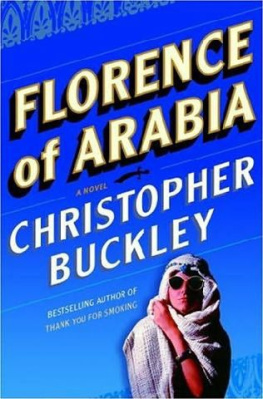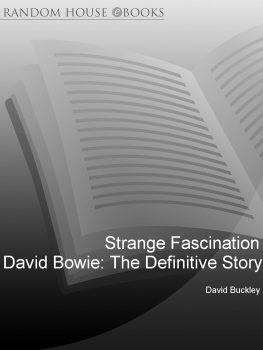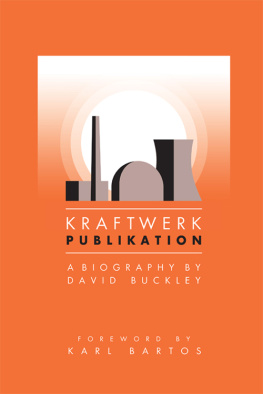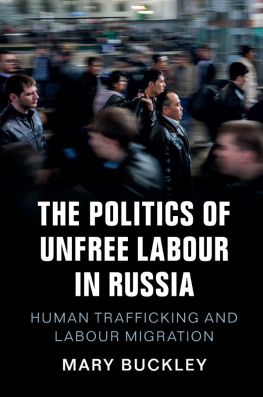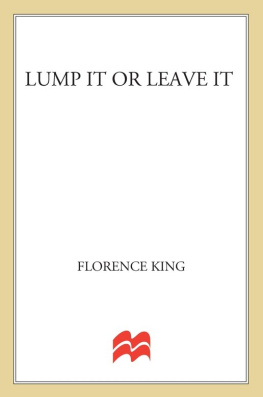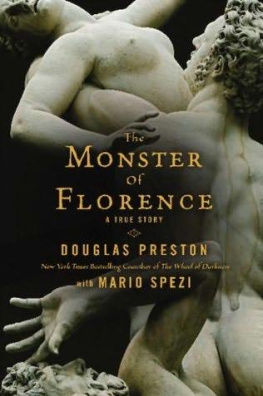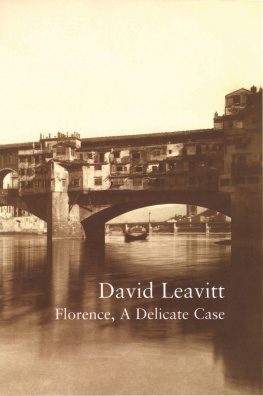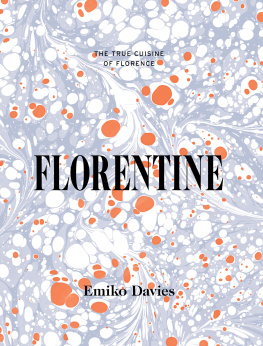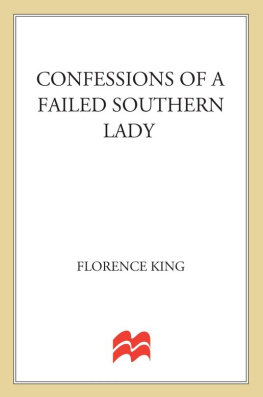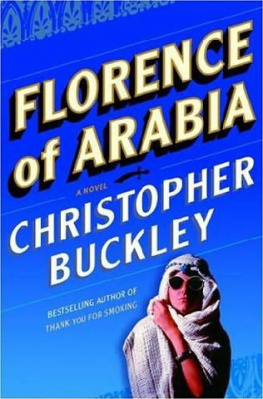Florence of Arabia
Book Jacket
Tags: Satire
Satirettt
SUMMARY:
The bestselling author who made mincemeat of political correctness in Thank You for Smoking, conspiracy theories in Little Green Men, and Presidential indiscretions No Way to Treat a First Lady now takes on the hottest topic in the entire worldArab-American relationsin a blistering comic novel sure to offend the few it doesnt delight.Appalled by the punishment of her rebellious friend Nazrah, youngest and most petulant wife of Prince Bawad of Wasabia, Florence Farfarletti decides to draw a line in the sand. As Deputy to the deputy assistant secretary for Near East Affairs, Florence invents a far-reaching, wide-ranging plan for female emancipation in that part of the world.The U.S. government, of course, tells her to forget it. Publicly, that is. Privately, shes enlisted in a top-secret mission to impose equal rights for the sexes on the small emirate of Matar (pronounced Mutter), the Switzerland of the Persian Gulf. Her crack team: a CIA killer, a snappy PR man, and a brilliant but frustrated gay bureaucrat. Her weapon: TV shows.The lineup on TV Matar includes A Thousand and One Mornings, a daytime talk show that features self-defense tips to be used against boyfriends during Ramadan; an addictive soap opera featuring strangely familiar members of the Matar royal family; and a sitcom about an inept but ruthless squad of religious police, pitched as Friends from Hell.The result: the first deadly car bombs in the country since 1936, a fatwa against the stations entire staff, a struggle for control of the kingdom, and, of course, interference from the French. And thats only the beginning.A merciless dismantling of both American ineptitude and Arabic intolerance, Florence of Arabia is Christopher Buckleys funniest and most serious novel yet, a biting satire of how U.S. good intentions can cause the Shiite to hit the fan.From the Hardcover edition.
Christopher Buckley
FLORENCE OF ARABIA

Random House N ew York
This is a work of fiction. All incidents and dialogue, and all characters With the exception of some well-known historical and public figures, are products of the author's imagination and are not to be construed as real. Where real-life historical or public figures appear, the situations, incidents and dialogues concerning those per sons are entirely fictional and are not intended to depict actual events or to change the entirely fictional nature of the work. In all other respects, any resemb lance to persons living or d ead is entirely coincidental. (G ot that? Any questions? It's all made up. Okay? Whatever.
Copyright 2004 by Christopher Taylor Buckley
All rights reserved under International and Pan-American Copyright Conventions. Published in the United State s by Random House, an imprint of The Random House Publishing Group, a division of Random House. Inc.. New York, and simultaneously in Canada by Random House of Canada Limited, Toronto.
Random House and colophon are reg istered trademarks of Random H ouse, Inc.
Printed in the United State s of Ameri ca on acid-free paper Random H ouse website address:
32]
PROLOGUE
T he official reside nce of His Excellency Prince Bawad bin-Ru mallah al-Hamooj, ambassador of the Royal Kingdom of Wasabia to the United States oi' America, perches expensively on $18 million of real estate overlooking a frothy rapid of the Potomac River a few miles upstream from Washington, D.C. The emblem on the front gate of the palatial compound displays in bright gold leaf the emblem of the Royal House of H amooj: a date palm tree, a crescent moon and a scimitar, hovering over a head. Viewed close up, the head does not bear a pleased expression, doubtless owing to its having been decapitated by the above scimitar.
Historically speaking, the head belonged to one Raliq "The Unwise" al-Sawah, who, one night in 1740 or 1742 (historians differ on the precise date), attempted to usurp the authority of Sheik Abdulabdu llah "The Wise" Walfa al-Hamooj, founder of the Wasabi dynasty and future king. According to legendnow-taught as historical fact in the country's schoolsRafiq's severed head attempted to apologize to the sheik for its perfidy, and begged to be reattached. Sheik Abdulabdullah, however, was in no mood to hear these entreaties. Had he not treated Raliq like his own brother? He ordered the still-blubbering mouth to be stuffed with camel dung and the head tossed to the desert hyenas.
The event is commemorated every year on th e anniversary of the Perfidy of Raliq. Adult male citizens of the kingdom are required to place a token amount of camel dung on the tongue, as a symbol of the king's authority and a reminder of the bitter fate that befalls those who attempt to und ermine it. In practice, only H amooji royal palace staff and the most conservative of Wasabis re - enact the ritual literally. A hundred years ago. an enterprising confectioner in the capital city of kalla devised a nougat that gave off the telltale aroma of the original article, enough to fool the m ukfelleen, the religious police who sternly enforce the precepts of the Book of H amooj. Wasabis could pop one onto the tongue and walk about ail day with a showy air of piety. Alas, the trickery was discovered, and the unfortunate candy-maker forfeited not only his license to manufacture sweets but his tongue, right hand and left foot. On assuming the throne in 1974. King Tallulah decreed that a symbolic piece of dung would suffice. This ca used much grumbling among the W asabi mullahs and Mu kfelleen but vast relief among the adult male population.
A few minutes past midnight on the crisp fall night of September 28, the gates on which the royal emblem was mounted swung open and let out th e car driven by Nazrah al-Bawad, wife of Prince Bawad.
Nazrah's exit would have gone more smoothly had she spent more time behind the wheel of an automobile. W asabi women were not permitted to drive. However, being both enterprising and spirited, Nazrah had, since she was a teenager, been begging various males, starling with her brother Tamsa, to teach her the mysteries of steering, brake and gas. Taking the wheel of their father's Cadillac in the open deserts of Wasabia was not so complicated. In Washington, she would importune (that i s. bribe) reluctant Khalil, her chauffeur-bodyguard-minder, to let her drive on certain half-deserted streets, and in the parking lots of such royal hangouts as Neiman Marcus and Saks fifth Avenue. She had progressed to the point of almost being able to park a car without leaving most of the paint on the fenders of the ones in front and behind. Khalil had. in the process, earned a reputation within the residential household as a driver of less than perfect reliability.
Here, tonight, Nazrah found herself maneuvering with difficulty. Exiting the gate, she sheared off the rearview minor and left a scrape down the side of the $85,000 car that would cause the most stoic of insurance adjusters to weep. Her intention had been to turn left, toward the city of Washington. But, seeing the headlights of a car coming up the country lane from that direction, she panicked and turned right, deeper into the deciduous suburb of McLean.
In truth, N azrah was not thinking clearly. In truth, she was drunk. Drunk, as one might explain to a magistrate, with an explanation.
After more than twenty years in Washington, her husband, the prince, had announced his intention of re turning to Wasabia. along with N azrah and his three other wives. His uncle, the king, had decided to reward his decades of smooth service by annointing his nephew foreign minister. This was a big promotion that came with an even bigger palace and share of Wasabia's oil royalties.

